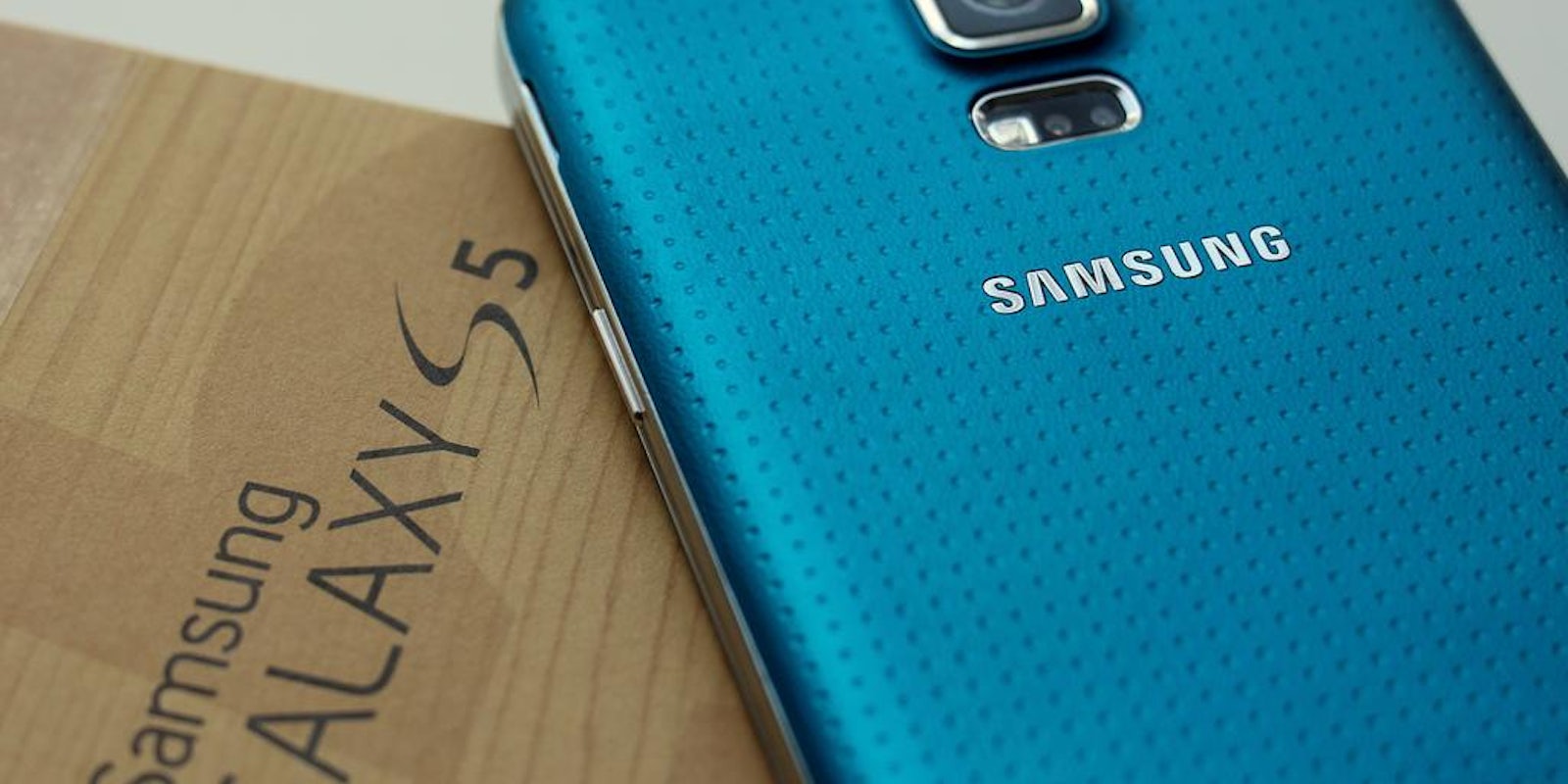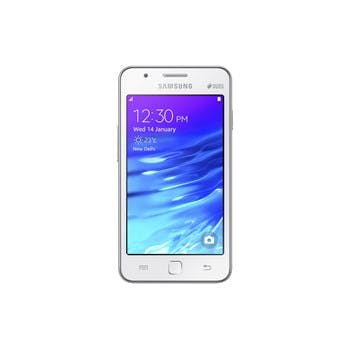Last week, you probably saw the word “Tizen” a lot—and unless you’re a big Samsung fan there’s a good chance this is the first you’ve heard of it. Let’s break down exactly what Tizen is and why you should care—especially if you’ve got an Android phone in your pocket right now.
What is it?
Tizen is a highly flexible operating system that can power everything from smart TVs to in-car entertainment systems, and of course smartphones. It’s based on Linux—like Android—and in terms of functionality it mimics both Android and iOS in a number of ways. It’s icon-based, built for ease of use on touchscreen devices, and utilizes apps in the same way Android and iOS do.
Tizen’s official debut came just over three years ago in January 2012, but the first product you could actually buy that ran on Tizen—a highly-reviewed Samsung smart camera—didn’t hit the market until late 2013. Most notably, Tizen replaced Android on the second iteration of Samsung’s Gear smartwatch, the Gear 2.
It’s been a hot topic this week thanks to the launch of the Samsung Z1, which is the first (or arguably second) smartphone to be powered by Tizen, and a sign of what the future could hold for one of the world’s biggest tech companies. The Z1 is a low-to-mid-range smartphone with a 4-inch screen and a 1.2GHz processor, and it debuted in India this week.
It’s about the future
Nobody outside of an emerging market really cares about the Z1 specifically, but its release is significant because of what it might mean for the future of Samsung devices.
If Tizen development speeds up a bit, the OS could become a stand-in for Android on entry-level and mid-range Samsung phones and eventually take over Samsung’s entire smartphone (and tablet) lineup.
Samsung has become one of the most successful smartphone manufacturers in the world and it’s done so by using Google’s operating system. Samsung has helped bring countless users into the Android ecosystem, and while that’s fantastic news for Google, it’s not an ideal situation for Samsung.
Customers use Samsung’s devices to download apps, music, and movies from the Google Play Store, where Google scores a cut of every sale. On iOS, Apple takes a similar cut from the devices it makes. Right now, a purchase made from a Samsung device doesn’t benefit Samsung on the software side. As Apple has demonstrated, a closed ecosystem is by far the most profitable.
Not only is Google reaping the benefits from customers who love Samsung’s mobile devices, but Samsung remains beholden to Google’s own vision for its operating system. Sure, Samsung can skin Android with all manner of add-ons but nobody actually wants that, and many simply remove it anyway. Traditionally a hardware company, Samsung wants to control its own software destiny too—and at the moment it doesn’t, at least not when it comes to mobile.
Tizen could change that. Right now, Tizen is still somewhat half-baked, which is why you shouldn’t expect to see a high-end Tizen smartphone hit your local carrier for a while yet, but Samsung’s priorities could change rapidly. If Tizen development speeds up a bit, the OS could become a stand-in for Android on entry-level and mid-range Samsung phones and eventually take over Samsung’s entire smartphone (and tablet) lineup.
The bottom line
Samsung has two different halves to its mobile business: Samsung-branded phones and tablets are one part, while the other is the components it manufactures for other companies. Its component business—of which Apple is a huge customer—is doing quite well, while Samsung continues to lose buckets of cash on its own devices.
The company sells a lot of phones, spends a lot to market those phones, and Samsung is the number one smartphone maker in the world. Despite all that, earnings guidance for the end of 2014 shows a 40 percent drop over the same point a year ago, and this trend has been going on for a while now.
Competition is more fierce now than ever before, with Apple broadening its horizons and launching iPhones in new countries and companies like Xiaomi doing their best to undercut everyone in their path. Unless all of its competitors suddenly decide to give up their smartphone ambitions, this part of the equation isn’t going to change, so Samsung needs to look at ways to maximize the profit from its existing footprint.
A slow-but-sure conversion from Android to Tizen may well be a good move, and if Samsung can somehow convince developers to port their Android and iOS applications over to Tizen, it has a fighting chance to create its own “walled garden” where customers and their money stay within Samsung walls.
This isn’t Windows Phone
I know what you’re thinking: Won’t this just be Windows Phone all over again? No, it won’t, and here’s why.
Samsung is the largest smartphone maker in the world, which means that there are millions and million of people who already trust Samsung from a brand perspective and like what the company offers on the hardware front. These are things Windows Phone has never had.
Are you unlocking your @TizenChallenge badges? New blog: http://t.co/EyAjMsTDqy on badges, #Tizen loot and big money. pic.twitter.com/MMcbKq4vVi
— TizenAppChallenge (@TizenChallenge) August 15, 2013
Picture this: Samsung entices a handful of popular developers—think King, Supercell, Rovio, etc.—to get Tizen versions of their best games up and running on a new, non-Android “S” phone. Maybe they’ll even work out an exclusive agreement for a specific version of Angry Birds or Candy Crush. Along with the social networks which will port their wares to just about any platform, Samsung launches its new high-end Tizen smartphone and Samsung fans, of which there are many, take the leap of faith.
Suddenly there’s a market of Tizen consumers hungry for apps, app makers follow them to Tizen. Naturally, Samsung would slurp up all the delicious “partner fees” associated with running an app store and finding itself in the business of running its very own mobile platform.
If a scenario even vaguely resembling this were to play out, it would likely be years before it happens. Still, one big brick of that hypothetical foundation was laid this week in India with the launch of the Tizen-equipped Z1. From here, anything is possible.
Photo via Saul Tevelez/Flickr (CC BY-2.0)




